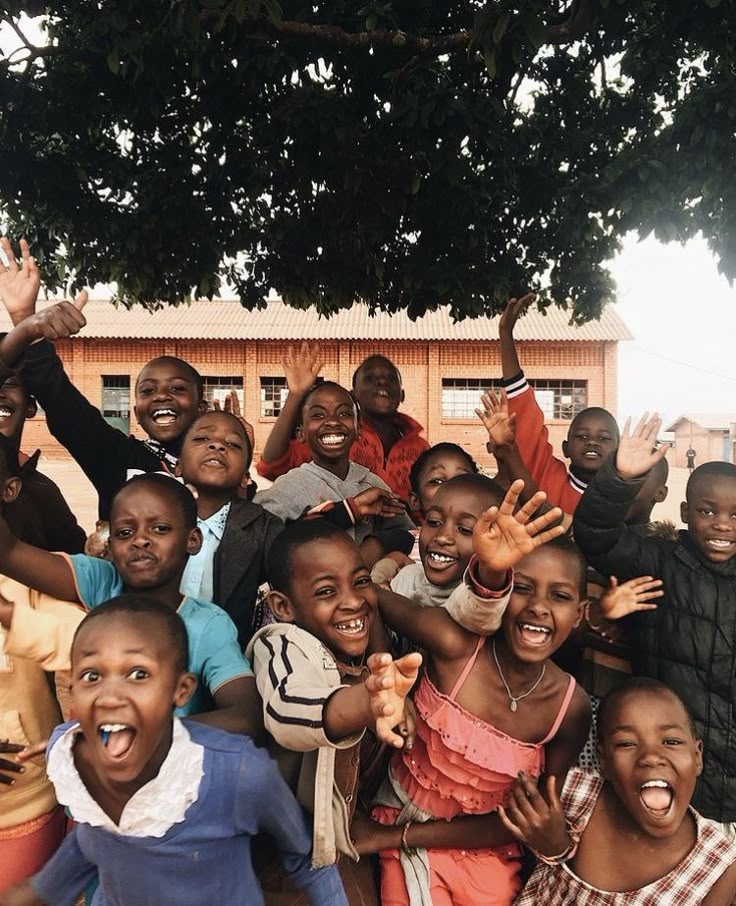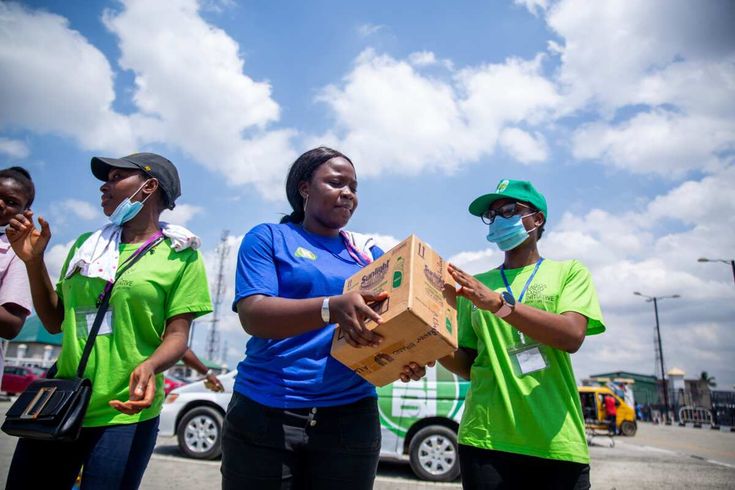Are NGOs Doing More Harm Than Good in Africa?

Introduction: A Double-Edged Sword
For decades, non-governmental organizations (NGOs) have been at the heart of Africa’s humanitarian and development landscape. From emergency relief in conflict zones to long-term health, education, and governance projects, NGOs have filled critical gaps left by fragile states and underfunded institutions.
But beneath the benevolent surface lies a contentious debate: Are NGOs truly advancing Africa’s development, or are they perpetuating a cycle of dependency, distortion, and dysfunction?
This question has become especially urgent in recent years, as criticisms grow louder from local activists, development economists, and even some former aid workers. In a continent striving for self-determination, the role of NGOs deserves more than blind acceptance.
The Promise: Why NGOs Matter

image credit: pinterest
To begin, it's important to acknowledge the vital work NGOs have done. In countries devastated by war—such as South Sudan, DR Congo, or Somalia—NGOs have been the only functioning service providers, offering lifesaving medical care, shelter, and food. In rural areas, they’ve brought clean water, schooling, and maternal healthcare where government presence is minimal or absent.
Some, like Médecins Sans Frontières or The Carter Center, have led pioneering efforts in disease eradication, conflict mediation, and refugee support. Local NGOs, too, have emerged as critical actors in women’s empowerment, civic education, and climate resilience. Without them, countless lives would have been lost or worsened.
But does this justify the entire sector? Or have foreign aid dynamics, through NGOs, slowly undermined the very systems they were meant to strengthen?
The Problem of Dependency

image credit: pinterest
One of the core criticisms of the NGO model is the creation of dependency. In many African countries, development aid has become a parallel economy, with NGOs acting as de facto governments, especially in remote or post-conflict regions.
This dynamic disincentivizes governments from building their own public institutions. Why invest in healthcare or infrastructure if foreign NGOs will do it instead? It also disempowers local communities, who come to rely on handouts rather than developing sustainable, locally owned solutions.
For example, in Malawi, it is estimated that over 55% of primary healthcare services are delivered by donor-funded NGOs. While this fills an immediate need, it weakens the state’s legitimacy and ability to tax, plan, and respond. When funding dries up—as it often does—systems collapse.
Distortion of Priorities
NGOs are not politically neutral. Their funding—often from Western donors—comes with strings attached, which can distort national development priorities.
An NGO funded by a European government may prioritize gender advocacy, climate policy, or LGBTQ+ rights because those are the donor’s political interests, even if they are not locally urgent.
Meanwhile, sectors like agricultural reform, industrialization, or youth employment—which are crucial to Africa’s structural development—remain underfunded.
This leads to a paradox: Africa has thousands of NGOs, yet remains chronically underdeveloped, partly because projects are often donor-driven rather than community-led.
In Ethiopia, where donor money is tightly controlled by foreign priorities, activists have noted that NGOs often pursue what’s “fundable” rather than what’s needed. A well-written grant proposal may get support for tree planting, while a local school in disrepair gets ignored.
There are often cases of illegal activities carried out under the guise or umbrella of NGOs. These impact negatively to the situation or state of such country.
The Bureaucracy of Charity
Another issue is the professionalization and bureaucracy within the NGO world. Many large international NGOs operate more like corporations than grassroots movements, with executive salaries, brand consultants, and public relations departments.
Only a fraction of the money raised reaches the ground. A study by Development Initiatives showed that in some large NGOs, administrative costs consume up to 40% of project budgets.
Worse still, expat dominance in staffing—especially in leadership positions—reproduces the colonial dynamic: Westerners planning and managing projects for Africans. This undermines local expertise and erodes community ownership.
The Savior Complex and the Optics of Help
NGOs are often wrapped in a “white saviour complex”, projecting images of helpless Africans in need of rescue by benevolent outsiders. These narratives serve to justify intervention, attract donations, and maintain control, but they do real damage.
They strip Africans of agency, reinforcing the view that the continent is a perpetual charity case rather than a region full of potential and leadership.
Social media campaigns, while well-intentioned, often rely on trauma porn—photographs of malnourished children or war victims—to solicit funds. But they rarely show the stories of resilience, innovation, or self-reliance that are just as present.
Local Alternatives and the Rise of African-Led Solutions
Despite the challenges, change is underway. Across the continent, a new generation of African-led NGOs, social enterprises, and movements is reclaiming the narrative.
Initiatives like Shining Hope for Communities (SHOFCO) in Kenya, BudgIT in Nigeria, or BarefootLaw in Uganda are examples of homegrown solutions to local problems. These organizations prioritize transparency, accountability, and community inclusion, often with better results than international counterparts.
Moreover, regional bodies like the African Union are pushing for a shift from aid-dependence to self-reliance, urging donors to channel funds through government systems and invest in long-term infrastructure, not just short-term projects.
Can NGOs Still Do Good?
Yes—but only if they radically shift their model. The future of meaningful development in Africa lies in partnership, not patronage. NGOs must start by:
Supporting existing state structures rather than replacing them
Deferring to local knowledge and leadership in project design
Committing to transparency, including publishing budgets and impact assessments
Investing in capacity-building rather than temporary service delivery
Most importantly, NGOs must relinquish control. The true test of their success is not how many wells they build, but how many they can hand over without fear of collapse.
Conclusion: Harm or Help?
The question isn’t whether NGOs are good or bad—it’s how they operate, who they listen to, and what structures they strengthen or weaken.
In their best form, NGOs can be life-saving, empowering, and catalytic. In their worst, they are unaccountable, extractive, and neocolonial.
For Africa to thrive, NGOs must evolve—not into permanent fixtures, but as transitional agents that prepare the ground for local ownership, state leadership, and sustainable development.
Until that shift occurs, the answer to the question remains ambiguous: NGOs are helping—but often, they are also harming.
You may also like...
When Sacred Calendars Align: What a Rare Religious Overlap Can Teach Us

As Lent, Ramadan, and the Lunar calendar converge in February 2026, this short piece explores religious tolerance, commu...
Arsenal Under Fire: Arteta Defiantly Rejects 'Bottlers' Label Amid Title Race Nerves!

Mikel Arteta vehemently denies accusations of Arsenal being "bottlers" following a stumble against Wolves, which handed ...
Sensational Transfer Buzz: Casemiro Linked with Messi or Ronaldo Reunion Post-Man Utd Exit!

The latest transfer window sees major shifts as Manchester United's Casemiro draws interest from Inter Miami and Al Nass...
WBD Deal Heats Up: Netflix Co-CEO Fights for Takeover Amid DOJ Approval Claims!

Netflix co-CEO Ted Sarandos is vigorously advocating for the company's $83 billion acquisition of Warner Bros. Discovery...
KPop Demon Hunters' Stars and Songwriters Celebrate Lunar New Year Success!

Brooks Brothers and Gold House celebrated Lunar New Year with a celebrity-filled dinner in Beverly Hills, featuring rema...
Life-Saving Breakthrough: New US-Backed HIV Injection to Reach Thousands in Zimbabwe

The United States is backing a new twice-yearly HIV prevention injection, lenacapavir (LEN), for 271,000 people in Zimba...
OpenAI's Moral Crossroads: Nearly Tipped Off Police About School Shooter Threat Months Ago
ChatGPT-maker OpenAI disclosed it had identified Jesse Van Rootselaar's account for violent activities last year, prior ...
MTN Nigeria's Market Soars: Stock Hits Record High Post $6.2B Deal

MTN Nigeria's shares surged to a record high following MTN Group's $6.2 billion acquisition of IHS Towers. This strategi...

:max_bytes(150000):strip_icc()/Health-GettyImages-TeasForSleep-GreenTea-81370706a1f74a7995399f131213bda3.jpg)
